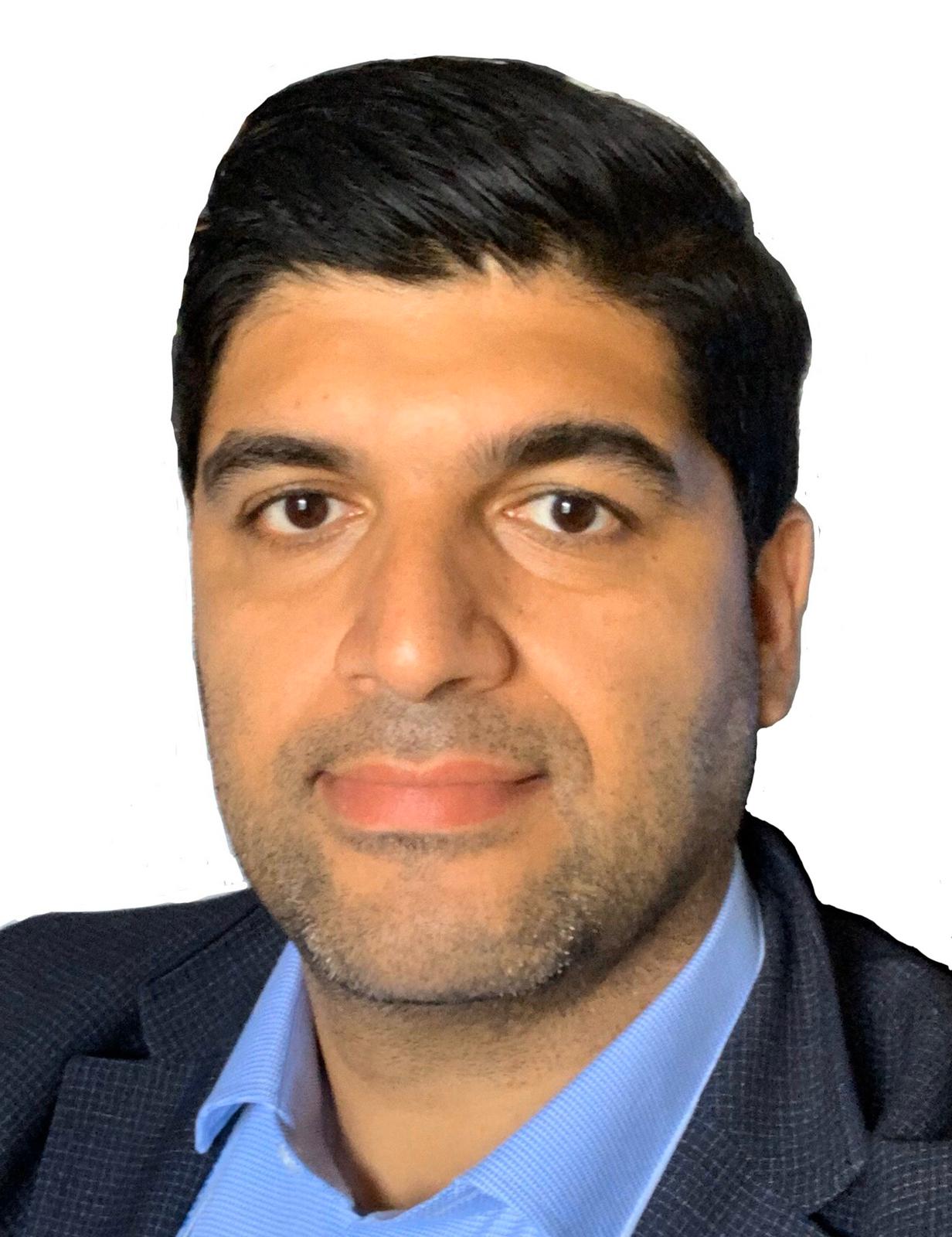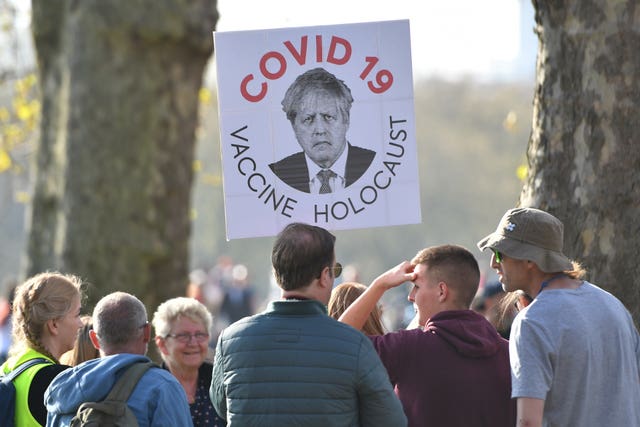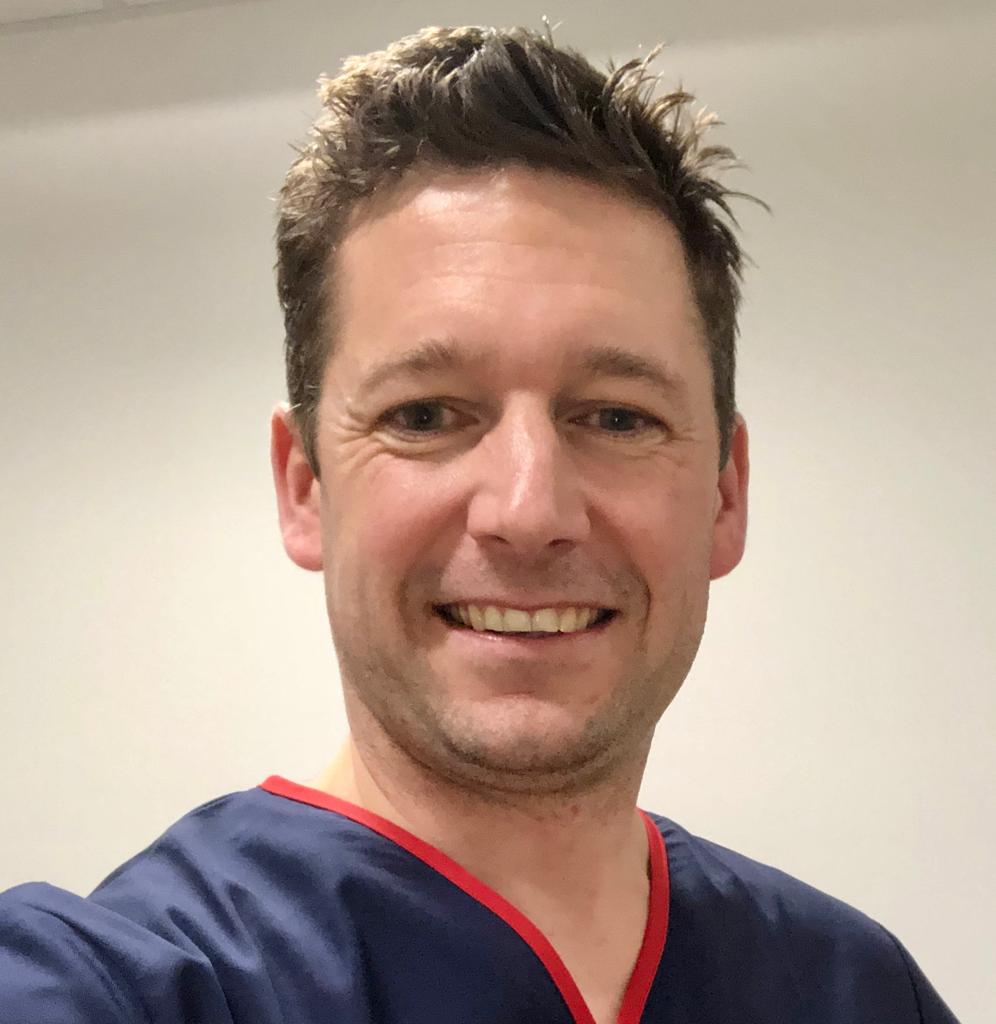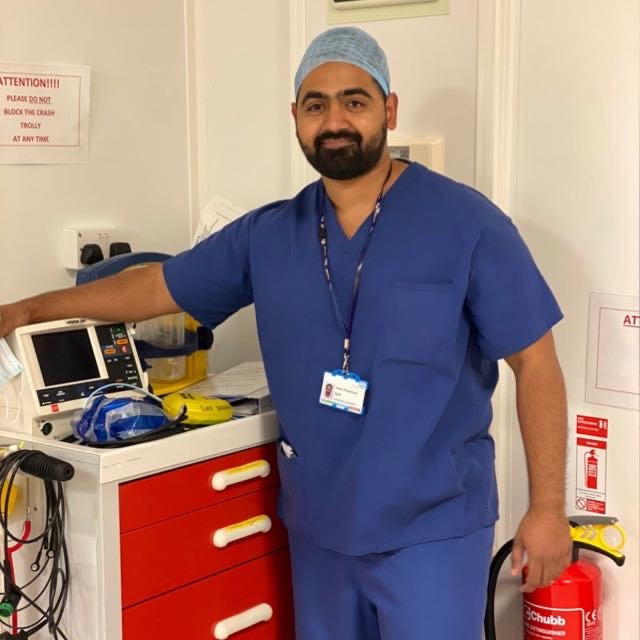Anti-lockdown protests shocking and disappointing, say doctors
A large protest against restrictions took place in London on Saturday.

The sight of people gathering for large-scale lockdown protests has been described as “shocking” and “disappointing” by NHS workers.
Two police officers were taken to hospital after protesters gathered in Hyde Park and marched down Oxford Street in London on Saturday.
The protest came on the day the Government announced more than half of the UK’s population had received their first dose of a Covid-19 vaccine, and with restrictions slowly being lifted.
Dr Ajay Verma, a consultant gastroenterologist and physician working in Northamptonshire, said: “There is a small minority of people who seem to believe there’s a conspiracy going on, which is upsetting, and the worst thing is they’re putting themselves at risk by gathering in a crowd.

“They’re protesting against the measures they’re driving themselves by gathering in a crowd.
“It is very disappointing, I have to say.”
Dr Karan Rajan, an NHS surgeon in Surrey, described the scenes as “shocking” – although he feels those involved represent a small minority of the population.
“I suspect it was a significant number of people who are anti-vaxxers and conspiracy theorists who got involved, and yet it’s shocking to see,” he said.
“Although we know the vaccination rollout is going ahead nicely and we’re getting back to normal with restrictions easing, it’s still very worrying to see such huge gatherings without masks out in public, basically breaking the law, which is really concerning to see.
“And it’s just really disappointing as well.”

Protesters carried banners with slogans such as “have you been called a conspiracy theorist in 2020? You may be entitled to an apology”, “you don’t need proof to know truth” and “Covid 19 vaccine holocaust”.
Others were seen wearing yellow stars, an apparent reference to the symbols Jews were forced to wear in Nazi Germany – something described by Dr Verma as “very upsetting”.
“I thought to try and use the metaphor and suggest that lockdown measures and vaccinations and masks are like genocide is very troubling,” he said.
“You do worry about things like that in society, that people can so easily marry up public safety into horrible historic things like genocide.”
The protests came as India suffers its worst surge of the pandemic, with cases rising sharply, oxygen supplies dwindling and crematoriums overwhelmed because of the high number of deaths.
“There’s stark contrast with the scenes in India, which makes it even more unbelievable in my view,” Dr Jamie Parker, a GP from Nottingham, told PA.

Dr Verma added: “There were times in January, and last April, where if the trends had continued as they were we would have seen what we’re seeing in India now – a breakdown of the health service.
“People don’t seem to realise, we were days, not weeks, days, to the brink.”
Dr Parker said it was vital that people continue to stick to social distancing rules while the vaccine programme continues to be rolled out.
“I know it’s been really difficult for the country,” he said.
“So many people have given up so much throughout the lockdowns and we know that lockdowns have their drawbacks, but throughout all they are really the only thing that have had worked before the vaccines, it’s the one thing that has brought down numbers and has saved lives.”
All three doctors said they respected the right to protest, but Dr Rajan said that demonstrations can become an issue if they start to intimidate those who are adhering to guidelines.

“In this country we believe in autonomy when it comes to medicine so everyone has the right to make a decision over what goes in their body,” he said.
“If someone doesn’t want the vaccine that is their decision at the end of the day, as long as they’re fully educated.
“But it’s important to ensure they don’t encroach upon anyone else’s right to decide, or right to feel safe.
“And a member of the public won’t feel safe if they see 1,000 people who don’t believe in masks or vaccines wandering the streets.
“You can not take the vaccine, that’s fine, that’s up to the individual, but we need to make sure that other people who want to feel safe, are safe, when the restrictions are easing.”





